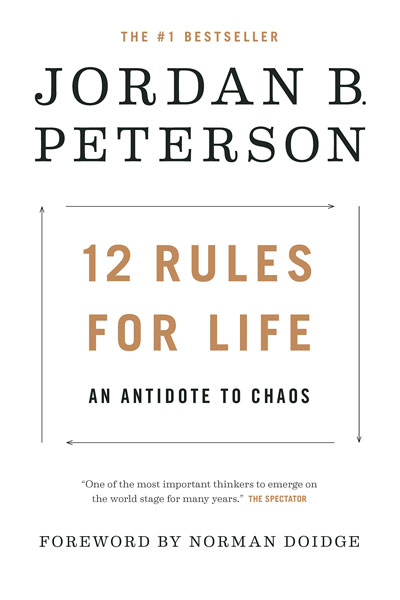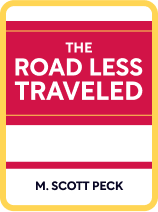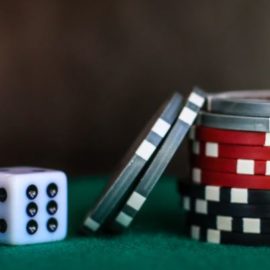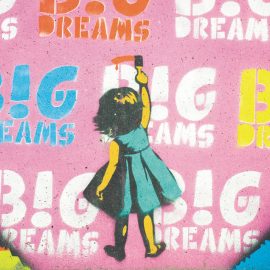

This article gives you a glimpse of what you can learn with Shortform. Shortform has the world’s best guides to 1000+ nonfiction books, plus other resources to help you accelerate your learning.
Want to learn faster and get smarter? Sign up for a free trial here .
Do you feel like you’re living in denial? Why do people deny what they know deep down is true?
Denial is a psychological coping mechanism for protecting yourself from pain or discomfort. While being in denial about something can help you numb the negative feelings that will result from facing the truth about a situation (or yourself), it can be dangerous in the long term.
Keep reading to understand the psychology of denial, why living in denial is harmful, and how to overcome it and face the truth.
What Is Denial?
Denial is refusing to believe that an objective truth exists because it causes pain. Denial is the first stage of grief, suggesting it’s part of a coping mechanism: Substance abusers tend to deny they have a problem as they further deteriorate.
Being in denial can possibly be helpful in these situations:
- If the objective truth is not available, and you need denial to persevere
- If the common wisdom is incorrect, and denying it helps you make better decisions
However, if the truth exists and you refuse to accept it, denial can only worsen your decision-making. According to Charlie Munger, the author of Poor Charlie’s Almanack, this happens because being in denial compounds consistency tendency and sunk cost fallacy.
Say you’ve lost a lot of money in a bad venture. Denial tricks you into thinking the situation is better than it really is. The sunk cost fallacy prompts you to put more money after bad. Self-consistency makes you behave with inertia so it’s harder not to behave differently than you have.
Poor Charlie's Almanack
by Charles T. Munger
58 min reading time
172.5k reads
audio version available
Jordan Peterson on Self-Denial
The worst case of denial is when you refuse to accept some truth about yourself. This could be about who to blame for your faults, or what you should do with your life.
For example, you might have a dream life envisioned by your younger self, without probing carefully into whether you really want it (career and retirement goals are common examples here). You may entertain ideas about what you really want, but deceive yourself into thinking they’re impossible to reach or undesirable after all. You then act in ways that you paper over with more lies, but deep down you know it’s inconsistent with your beliefs, and you feel unsettled.
In 12 Rules for Life, clinical psychologist Jordan Peterson warns of the dangers of being in denial about your life, writing that lying may work in the short term, but ultimately you will run into failure. If you betray yourself, if you act out a lie, you weaken your character. If you have a weak character, adversity will bulldoze you. By failing to react the first time, you’ve already trained yourself to tolerate things you disagree with.
This leads to bitterness. Because you are avoiding pain and fabricating your world, you are likely to avoid personal responsibility for your failures. You will blame the world as unfair, and other people as getting in your way. It’s not hard to take this one step further to believing “they must be stopped,” and another step further into revenge.
All this applies to many levels of existence. You may be lying to yourself:
- About what you want to do with the rest of your life.
- That you enjoy a job that actually bites against your being.
- That you continue relationships you know are toxic, under the guise of convenience or comfort.
- That you’re not capable of something, that it’s not worth trying, even though deep down you know you really want it.
- That a bad habit really isn’t that bad, or actually good for you.
- That things will get better on their own and things will magically work out without your involvement.
- That you know what you’re doing in life, when really you’re too scared to confront uncertainty.
Clearly telling lies to yourself leads to bad outcomes and misery. What do you do? Peterson says that you overcome self-denial by developing your personal truth.
Step 1) Develop your personal truth.
Figure out what you really want and why. If you don’t know what you want, you can start with tradition and work from there. Your truth is truly personal to you, based on you and your circumstances.
Ambitions based around developing character and ability are better than status and power. You can lose status, sometimes in ways out of your control; but no matter what happens, you carry character wherever you go.
Confronting the idea that you’ve been lying to yourself will likely be painful. Error requires sacrifice to correct it. The larger the error, the larger the sacrifice you need. This may mean accepting weaknesses you didn’t want to confront earlier. It may mean having conflicts with people you were lying to before. This is the cost of getting on the right track, but it’s worth it.
Once you develop a personal truth, it gives you a destination to travel toward. It gives you a personal code of conduct to act by. Having a personal truth reduces anxiety, because having either everything or nothing available are far worse options.
Step 2) Act only consistently with your personal truth.
Speak in a way that makes you feel strong, not weak. Act only in ways that your internal voice does not object to. A lie spoils all the truth it touches, like a tiny drop of sewage in a bottle of wine.
Are you doing anything you know is wrong? Stop it today. Stop when you feel an inkling that you should stop. Stop saying things that make you feel ashamed and cowardly; start saying things that make you feel strong. Do only those things about which you would speak with honor.
Stand up for your beliefs. If you say yes when you want to say no, you weaken your resolve and become habituated to violating your beliefs. You will lack the strength when you really need it. Instead, when you say no, you transform yourself into someone who can say no when it needs to be said. Nietzsche said that “the strength of a person’s spirit” is “measured by how much truth he could tolerate…to what extent he needs to have it diluted, disguised, sweetened.”
Step 3) Keep an open mind to new information and keep adjusting your truth.
Be willing to learn from what you don’t know. While tradition is a good start, it may no longer apply if the circumstances have truly changed. Putting yourself in new situations will literally grow your brain. Transform your values as you progress.
Again, all of this applies to many levels of existence.
- From the deepest level, it means defining what you want to do with your life, and shifting your time and energy to achieving progress in that direction.
- It means defining what kinds of relationships you want with people, and reconstructing ones that don’t meet your wants.
- It means doing something about things you disagree with in the world – how a country is moving, a policy your employer enacts, how you see a stranger treat another stranger.
- It means telling your friend or partner what you really think, at the expense of a conflict for a longer-term gain.
What do you do when you don’t know what to do? Tell the truth. At the very least, you will be trusted for being honest, and you’ll feel the strength that comes with authenticity.
Letting Go of Denial
People are often extremely resistant to overcoming self-denial because facing an uncomfortable truth requires courage and discipline, but what most people seek is relief.
For example, most people seeking therapy are looking for emotional relief, rather than growth. Many quit once they realize therapy is a challenge. The therapist tries to teach the client that relief is found through practicing the discipline to embrace challenges. Sometimes, the patient will continue therapy but resist the process of growth.
Consider free association, which is a method therapists often use to encourage openness in a client. Free association is saying whatever words come to mind without a filter, and if there are multiple, choosing the least comfortable words to share. Many patients end up curating their “free associations” to leave out any information that feels too vulnerable. They’d rather be in denial about what’s really troubling them than seek resolution.
Final Words
Being in denial about an aspect of your reality may confer relief in the short term, but you can’t keep running away from the truth forever. Sooner or later, it will catch up with you.
This is because when you’re in denial about something, deep down, you know (or at least, suspect) the truth: You just brush it off because you don’t want to deal with its implications.
If you found our article about being in denial helpful, check out the following suggestions for further reading:
Most people lead fragmented and unhappy lives full of suffering, driven by a variety of conflicting impulses even as they yearn to be true to their real selves. But fortunately, there’s an infallible expert on the subject of who you really are: you. You’re the only one with firsthand knowledge of what it’s like to be yourself.
In The Untethered Soul, spiritual teacher Michael A. Singer, founder of the Temple of the Universe meditation center and a pioneering figure in the world of medical software, teaches you how to use your direct self-knowledge as an intuitive tool for spiritual awakening. Combining powerful principles with practical techniques, he shows you how to free yourself from false identities and live an enlightened life of peace, joy, creativity, and divine love.
In A New Earth, Eckhart Tolle asserts that human consciousness is trapped in a state of dysfunction because we are controlled by our ego, which drives us to seek fulfillment by owning things and feeling superior to others. This has led to harm to both our planet and our species because of consumerism, ideological wars, pollution, and more. Tolle argues that we must undergo an evolution of consciousness if humanity and the earth are to survive. A New Earth aims to teach people how to do this: how to elevate their consciousness by becoming aware of their ego-driven thought and behavior patterns, and how to overcome those patterns.

Want to fast-track your learning? With Shortform, you’ll gain insights you won't find anywhere else .
Here's what you’ll get when you sign up for Shortform :
- Complicated ideas explained in simple and concise ways
- Smart analysis that connects what you’re reading to other key concepts
- Writing with zero fluff because we know how important your time is









